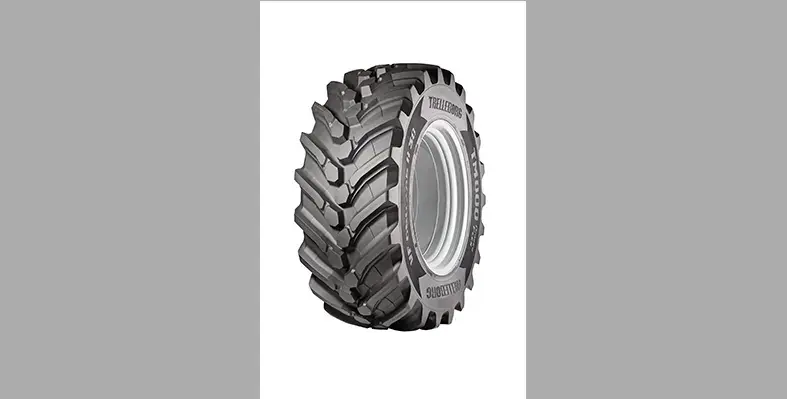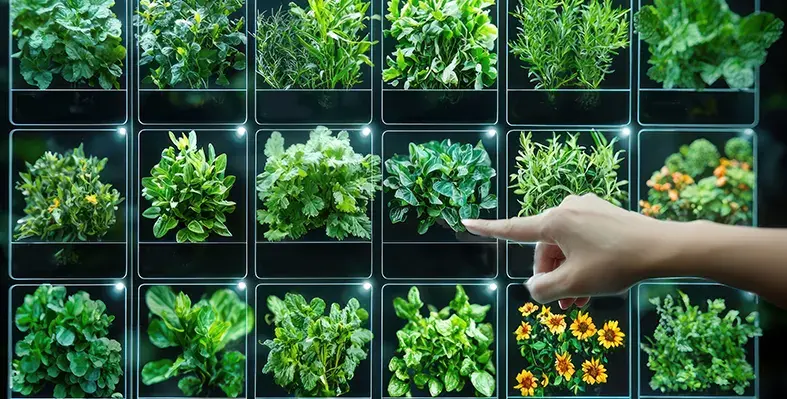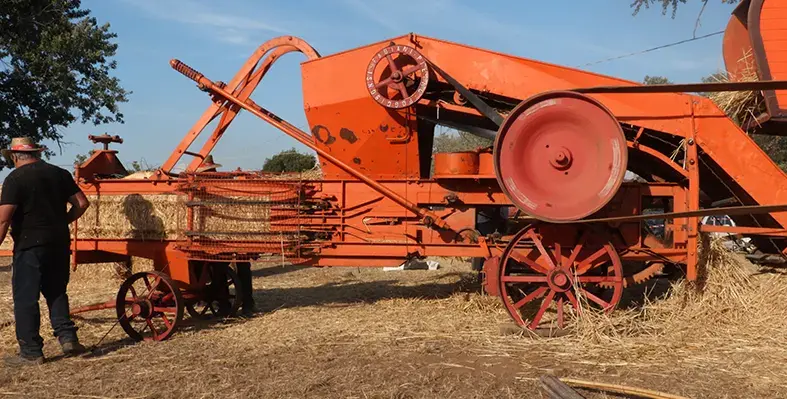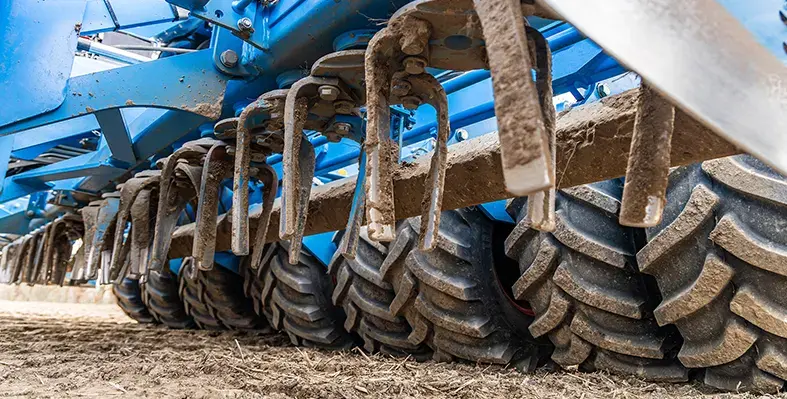Trelleborg Tyres has introduced the new TM800 PowerFlex, a high-performance agricultural tyre designed to deliver top results both in the field and on the road.
Created for today’s mid- to high-powered tractors, the TM800 PowerFlex aims to improve efficiency, versatility, and productivity—key needs for modern farmers.
The tyre features a combination of VF-PFO (Very High Flexion - Pressure Field Operations) technology and Trelleborg’s ProgressiveTraction lug design. Together, they offer excellent grip and flotation in challenging field conditions. A new central rib, based on road tyre designs, improves driving comfort, stability, and steering on long road journeys, all without compromising strength or grip.
In field tests, the TM800 PowerFlex provided up to 20% more traction than other premium tyres, which helps reduce slippage and boosts efficiency on wet or soft soil. Its 5% wider footprint helps lower soil compaction, supporting better crop yields and sustainability. New interlug terraces also improved self-cleaning by 5%, maintaining performance and cutting downtime.
On the road, the tyre showed a 6% drop in rolling resistance, leading to lower fuel use. It also improves handling and offers up to 20% longer tyre life, supporting cost savings and daily comfort.
The VF-PFO design allows more weight at lower speeds—17% more constant load at 10 km/h, and up to 40% more load at the same pressure—all while keeping durability, safety, and comfort intact.
Each tyre includes a QR code for quick access to digital product information, technical details, and user tips—right from the field.
Like the rest of the Trelleborg agricultural tyre line, the TM800 PowerFlex is made for maximum traction and durability, using high-quality materials and advanced tread design. Trelleborg now backs this model with a certified tread wear performance of up to 5,000 hours, available through its Premium Care Portal, offering extra confidence and peace of mind to farmers.
Luca Sabelli, Brand Director at Trelleborg Tyres, said: "With the TM800 PowerFlex, we've reimagined what farmers can expect from a tyre. It's the result of our deep understanding of real working conditions, where product innovation and real field results deliver practical benefits every day. It is how we turn innovation into value, helping agri professionals achieve more, with less."
Currently offered in two sizes (650/65R38 and 540/65R28), four more sizes will be available soon.









